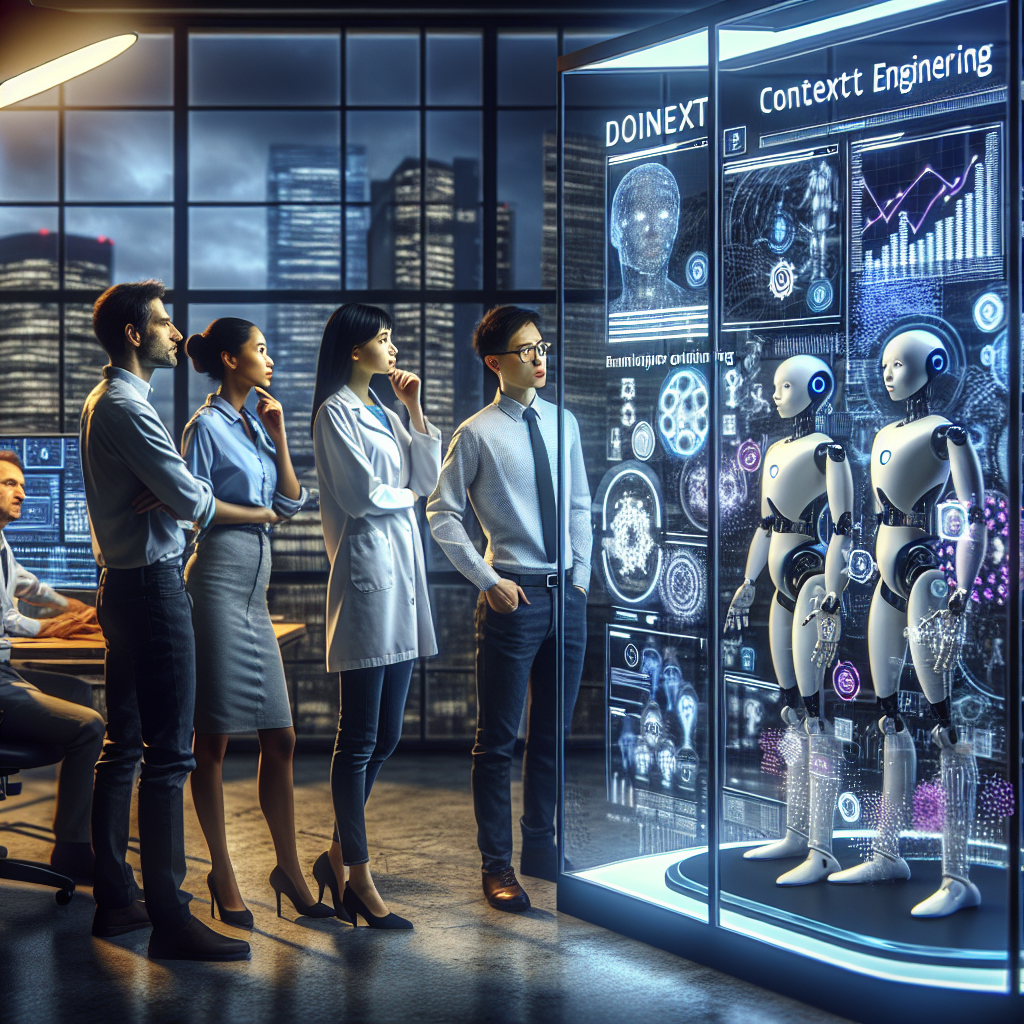5 Predictions About the Future of Context Engineering That’ll Shock You
Understanding Context Engineering in AI Agents
Introduction
The advent of artificial intelligence (AI) has sparked a revolution across industries, shepherding an era where machines can perform complex tasks traditionally done by humans. Among the pillars supporting this evolution is Context Engineering AI Agents. This innovative approach is crucial for developing AI systems that simulate nuanced human interactions by understanding and interpreting context efficiently. Context management is increasingly recognized as a key component for enhancing agent performance, which directly affects an AI agent’s ability to deliver accurate and relevant responses in different scenarios.
Background
The Manus project stands at the forefront of context engineering innovation. By exploring intricate aspects of AI architecture and design, Manus sheds light on effective context management strategies. The project illustrates critical lessons, including the necessity of KV-cache management, which involves handling key-value pairs to optimize memory and retrieval times. Another essential concept derived from Manus is the management of action spaces, which refers to the set of all possible actions an AI agent can take in a given context. These factors play a pivotal role in determining an AI agent’s flexibility and adaptability.
Drawing parallels from a restaurant kitchen, just as a chef efficiently organizes ingredients and cooking tools to create high-quality dishes, AI systems require meticulously structured context management for peak performance. This alignment of resources and operations allows AI agents to process vast amounts of data swiftly and accurately, akin to a well-oiled culinary machine.
Trend
Current trends in AI development highlight the increasing reliance on context engineering to overcome the limitations of traditional AI systems. Effective context management is transforming agent performance by enhancing understanding and decision-making processes. For instance, dynamic tool loading, while useful for adaptable AI, introduces complexity that necessitates sophisticated management techniques to avoid system confusion. This complexity is akin to a DJ dynamically adjusting playlists based on crowd energy; similarly, AI systems must adjust their toolsets in response to environmental cues.
Citing the MarkTechPost 2025 article, it’s noted that context windows with lengthy token counts can certainly exceed limits, emphasizing the need for streamlined context management strategies.
Insight
One of the most exciting insights from ongoing research is the potential for context engineering to drastically cut costs while boosting efficiency in AI systems. In particular, some studies highlight a tenfold cost difference achievable through optimized context management. This cost-efficiency stems from minimizing resource wastage and enhancing processing precision, much like a software update that improves a device’s performance without needing new hardware.
Innovative strategies, such as learning from mistakes and maintaining focus amid distractions, are being integrated into AI systems. These advancements are paving the path for AI agents to emulate human-like learning and adaptability, reducing energy expenditure and increasing task efficiency.
Forecast
Looking to the future, advancements in context engineering AI agents appear promising, with methodologies expected to become more sophisticated and intuitive. Future developments could see AI agents capable of instantaneously adapting to vast, multi-layered contexts in real-time applications. This sophistication will be crucial as industries increasingly integrate AI into their operations.
For companies reliant on AI development, continued innovation in context management could transform service delivery and operational efficiency, reshaping sectors such as healthcare, finance, and customer service. As the technology progresses, its repercussions promise to redefine interactions between machines and humans, opening new horizons for creativity and innovation.
Call to Action
As technology enthusiasts and professionals, staying informed about the advancements and implications of context engineering is crucial. The intricate interplay of AI agents and context management offers rich insights into the potential improvements in AI system efficiency and cost. We invite you to further explore this domain by engaging with content such as the MarkTechPost 2025 article, and share your thoughts and experiences as we collectively shape the future of AI development.
For more related insights, check out this article which delves deeper into context engineering’s transformative impact on AI agent design. Engage with the conversation by leaving comments and sharing the article with peers interested in AI innovation.
By delving into context engineering, we stand on the brink of a technological renaissance, one that promises to enhance our interaction with machines and each other, heralding a future where AI truly complements human capability.







